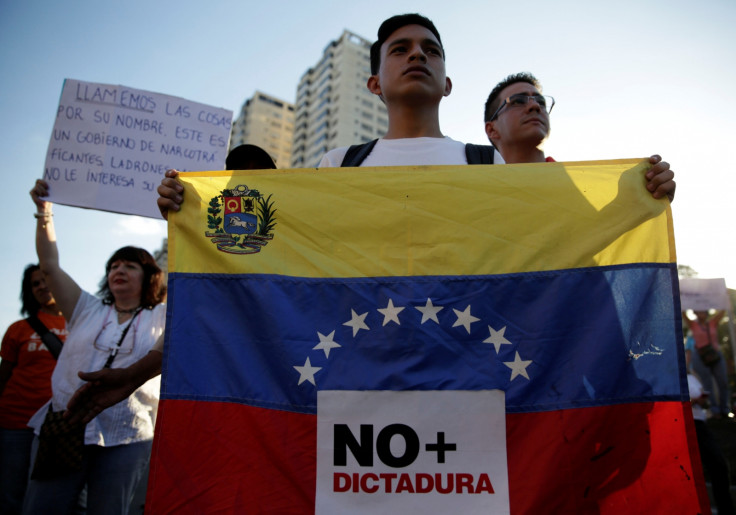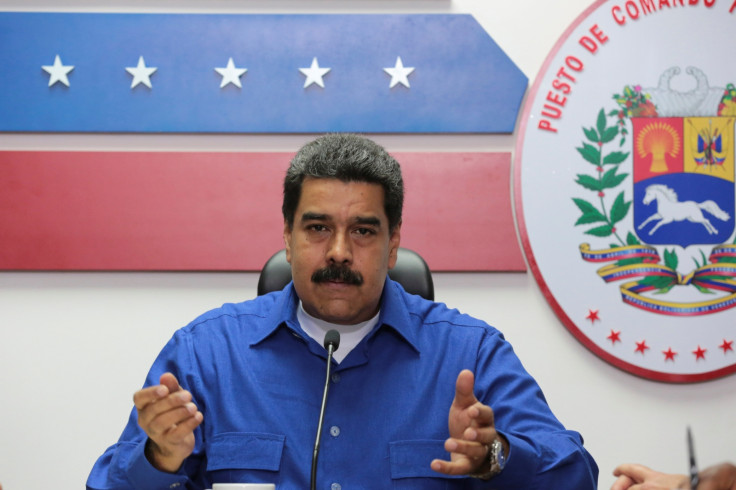Venezuela's Supreme Court urged to review decision on Congress amid coup allegations and protests
The court had earlier ruled it was taking over the legislature's role from the National Assembly.
Venezuelan authorities have urged the Supreme Court to review its ruling that stripped Congress of its powers. It has come hours after President Nicolas Maduro promised to clear the air over the country's top court assuming legislative powers of the opposition-controlled National Assembly.
The socialist leader on Friday (31 March) said he believed in dialogue and use of the constitution to resolve the political impasse in the country, as he held an emergency meeting with the state security council. The council brings together leaders from all branches of the Venezuelan government.
"I think today we can find a coherent, clear and constitutional solution that clears up doubts and disarms internal and external aggressions," Maduro said at the meeting early on Saturday (1 April).
The council announced it was supporting the review by the court "with the goal of maintaining institutional stability", AP reported.
Maduro is reported to have hailed the emergency meeting as a "constitutional victory" and said the month of April was starting on a good step for his country.
The court's decision to annul the National Assembly sparked massive protests and widespread international condemnation. Critics lambasted the move as a "coup" perpetrated by Maduro's Socialist Party that has ruled the state for the past 18 years.
However, Maduro said he did not have prior knowledge of the court's ruling, Reuters reported.
On 29 March, the pro-Maduro court ruled it was taking over the legislature's role and removing lawmakers' immunity because it was in "contempt" of the law. The opposition won control of the legislative branch in 2015.
However, in what is thought to be a rare show of dissent from a staunch supporter of Maduro's late predecessor Hugo Chavez, Venezuela's powerful attorney general Luisa Ortega, criticised the court's decision earlier on Friday (31 March).
"It constitutes a rupture of the constitutional order," Ortega said in a surprise declaration on state television. "It's my obligation to express my great concern to the country."
It is thought to have been the strongest sign yet of divisions in Maduro's government since its standoff with the centre-right opposition began in January 2016.

As the controversy mounted, several protesters took to the streets of capital Caracas throughout Friday. Demonstrators blocked roads, held banners and chanted slogans against Maduro's government, demanding "freedom". They also chanted: "No To Dictatorship!"
Dozens of demonstrators in volatile western Tachira state even tore up copies of the court sentences in front of their local judicial buildings, according to Reuters.
The 54-year-old president was narrowly elected in 2013 but his ratings tumbled to just over 20% as Venezuelans struggle to cope with years of recession. But Maduro has maintained that his country has become a victim of an "economic war" that he blamed on Washington.
His opponents have been demanding a recall vote to determine whether Venezuelans want to cut short the president's term before it expires in 2019. He has been blamed for the chaos in the country, which is facing the highest inflation in the world — leading to severe shortages of food and medical supplies.

© Copyright IBTimes 2025. All rights reserved.





















